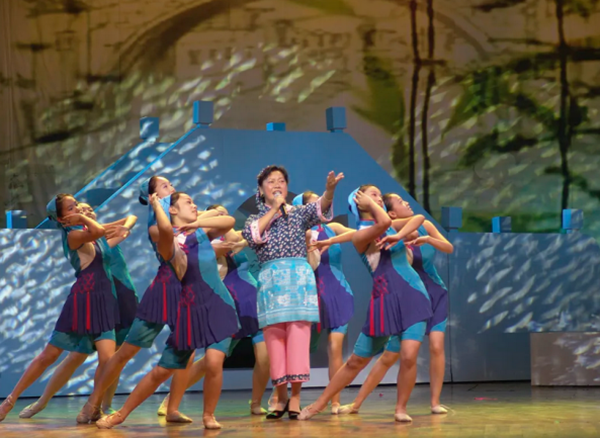Wu Songs, charming Jiangnan melodies
Updated: Dec 26, 2024Wu Songs, once popular in Wuxi, Jiangsu province, refer to a form of Chinese folk music that originated in the Taihu Lake Basin, representing an integral part of Wu culture.
With a history of over 3,200 years, this art form has been passed down orally from generation to generation and has been designated a national-level intangible cultural heritage item.

A classic piece of Wu Songs is performed. [Photo/wuximusic.com]
From a literary perspective, Wu Songs can be classified into short verse and long ballad. The former mostly relies on narrative descriptions and puns to celebrate love stories, while the latter thrives on short verses and through oral re-creation among the people.
In terms of music, Wu Songs are categorized into folk cappella and accompanied ditty, featuring smooth melodies and graceful lingering notes. It is usually performed solo or in choruses or duets.

Inheritors of Wu Songs sort out components of this Chinese folk music form. [Photo/wuximusic.com]
Wu Songs have also had a significant impact on local operas and folk music, such as Wuxi Opera, Kunqu Opera and Suzhou Pingtan. For instance, Yuan Renyi, a renowned folk singer from Yangjian town in Wuxi, developed Tanhuang drama (a folk opera art originated from Wu Songs) into Wuxi Opera.









